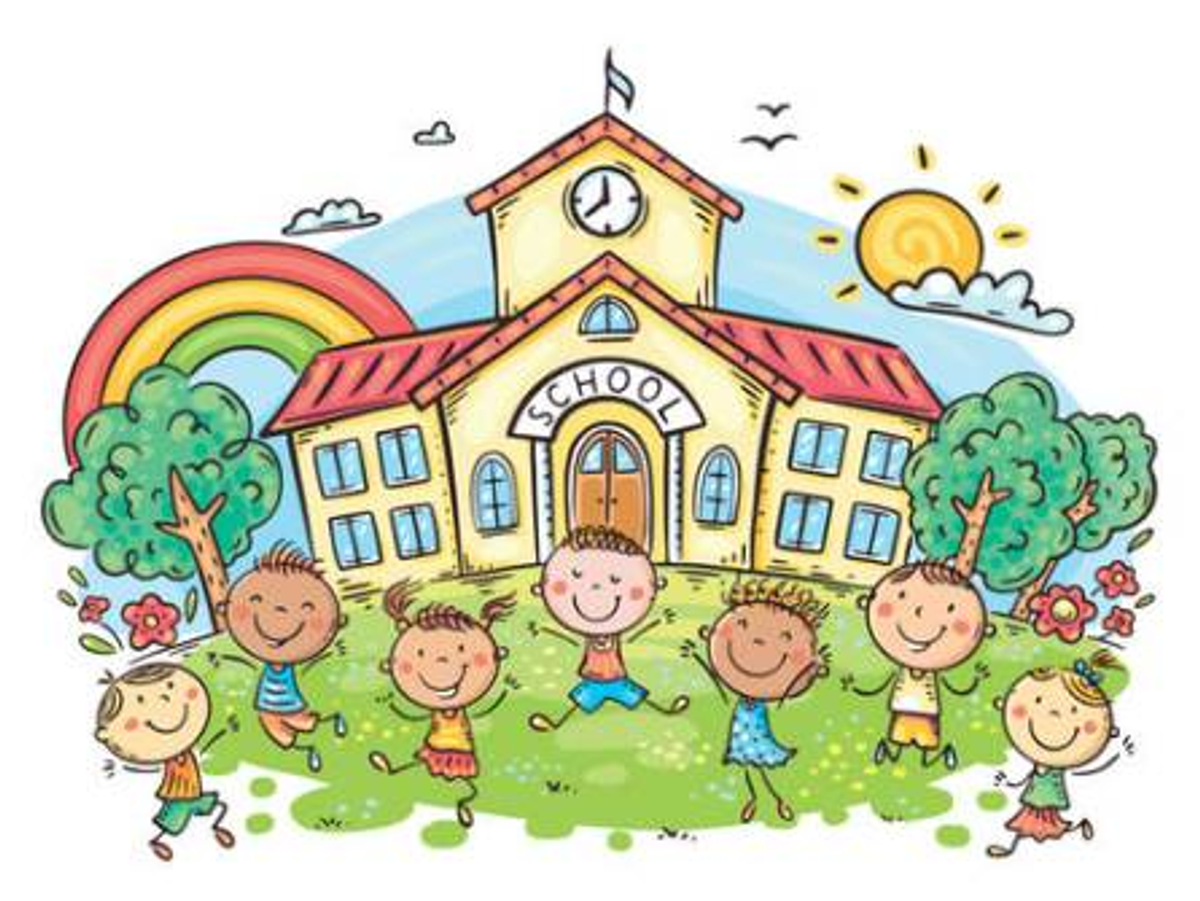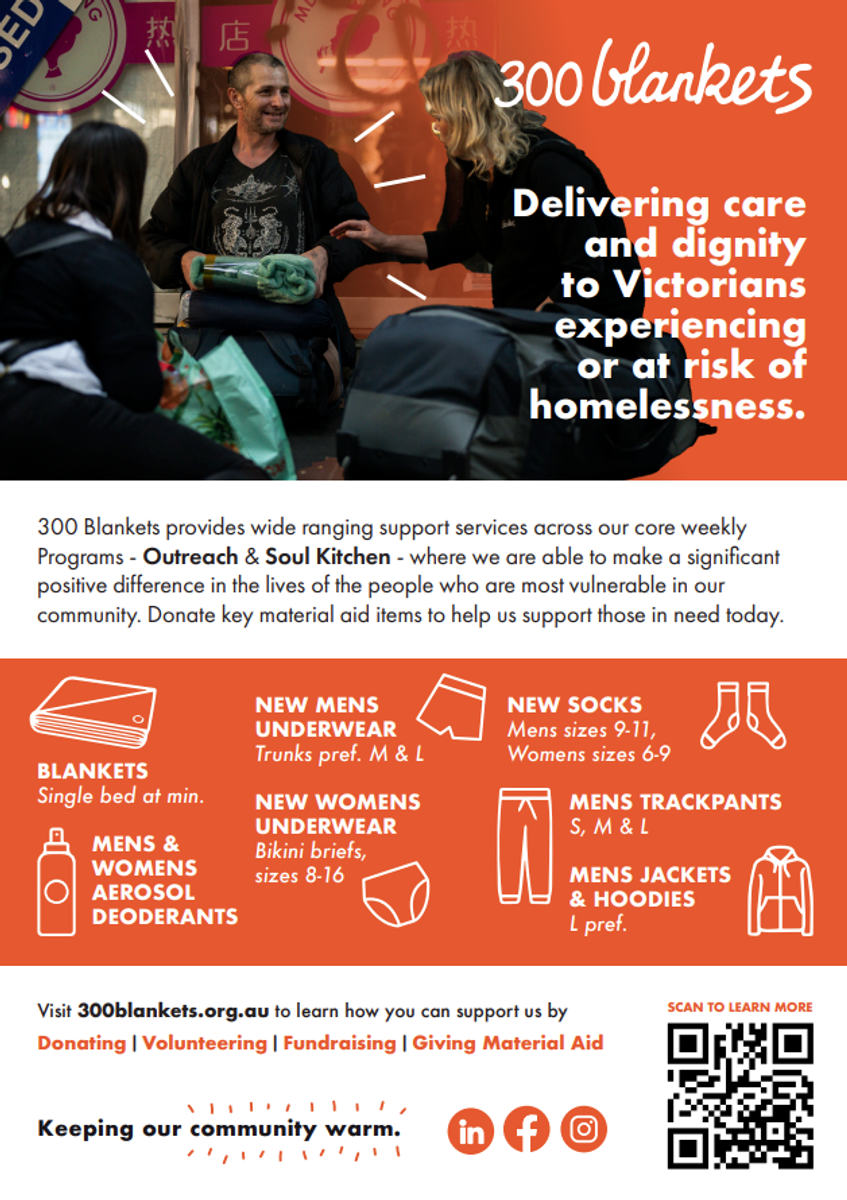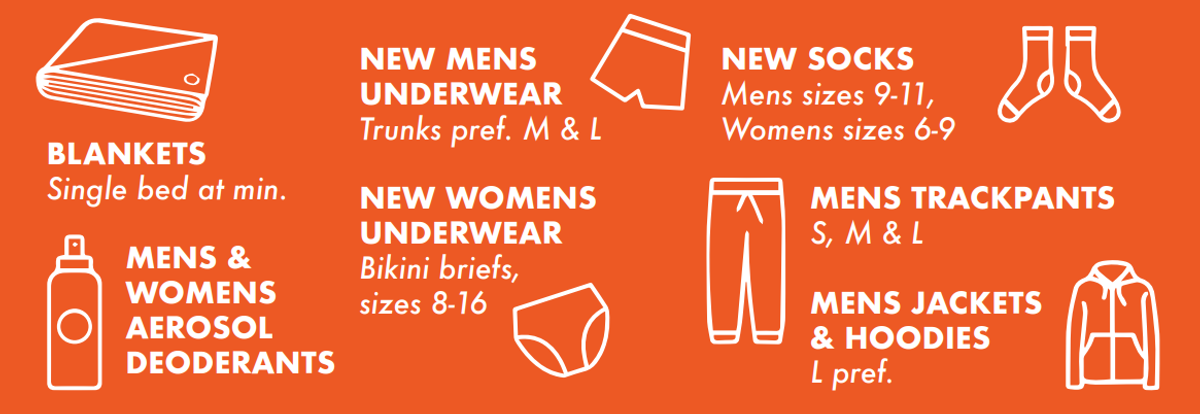Classroom News

Prep & Year 1 School Concert - Junior Concert
A Day in the Life (of an Alphington Primary School student)
Wednesday, 10th September, 7pm
The time is nearly upon us for the Prep and Year 1 School Concert, A Day in the Life (of an Alphington Primary School student), to be held at the Kew High School Theatre on Wednesday, 10th September at 7pm. Children need to be dropped off at 6.30pm.
Tickets are available through trybooking and we will announce though Compass when tickets go on sale. Tickets will be $20 each for adults and $15 concession.
Please direct any enquiries to me at Christy.Fulcher@education.vic.gov.au
If you know that your child will be absent on this day due to holidays or other circumstances, please send me a quick message to assist in planning.
Looking forward to seeing you all there!
Christy Fulcher - Performing Arts Teacher
Material Aid Drive for 300 Blankets
We are collecting for 300 Blankets! We are collecting until the end of Term 3.
Please see below for what is needed.
If possible, please donate the items above.
Collection tubs will be in the Main Office
Thank You
From The Community Outreach Action Team - Year 6
Helping Young Minds Navigate Big World Events: A Guide for Parents
By Michael Hawton, Child Psychologist (MAPS) and Parentshop founder.
Teenagers today are bombarded with information about climate change, global conflicts, and social injustices through social media and news platforms. Unlike younger children, adolescents have greater cognitive capacity to understand these issues, but they're also more likely to feel overwhelmed by their apparent magnitude and their perceived powerlessness to create change¹.
Whilst teenagers can think more abstractly than younger children, their brains are still developing, particularly the prefrontal cortex responsible for emotional regulation and long-term planning. This means they can understand complex global issues but may struggle to put them in perspective or manage the anxiety these issues provoke.
Research shows that teenagers who set unrealistic goals about changing the world are less happy than those who focus on achievable contributions. This is particularly relevant when discussing climate change and global issues with your teenager.
Four strategic approaches
Encourage Meaningful but Realistic Action Rather than trying to solve climate change single-handedly, help your teenager identify specific, manageable ways to contribute. This might involve joining environmental groups at school, volunteering with local organisations, or researching careers that align with their values. The key is helping them understand that meaningful change happens through sustained, collective effort rather than grand gestures.
When teenagers feel they can contribute meaningfully to solutions, it builds what I call a 'growth mindset' - the belief that challenges are opportunities for growth rather than insurmountable obstacles². This approach helps them develop resilience thinking skills that will serve them throughout their lives.
Discuss Media Consumption Critically Teenagers are sophisticated consumers of information, but they need guidance in developing media literacy. Discuss how news outlets and social media platforms are designed to capture attention through dramatic presentation. Help them identify reliable sources and encourage them to limit their consumption of distressing content.
Unlike with younger children, complete avoidance isn't realistic or appropriate for teenagers. Instead, help them develop skills to critically evaluate information and manage their emotional responses to it. This includes understanding how the constant stream of negative news can create a distorted view of reality.
Facilitate Deep Conversations Teenagers need space to express their concerns about world events without judgment. Create opportunities for meaningful discussions about their fears and frustrations. Listen actively to their perspectives and validate their emotions whilst helping them think through realistic responses.
Use these conversations to explore complex topics like the balance between individual responsibility and systemic change, the role of technology in both creating and solving problems, and how to maintain hope whilst acknowledging serious challenges. These discussions help teenagers develop sophisticated thinking skills and emotional regulation strategies.
Model Proportional Response Show your teenager how to respond proportionally to global challenges. This means taking appropriate action without becoming consumed by anxiety about things beyond individual control. Demonstrate how to stay informed without becoming overwhelmed, how to contribute meaningfully without taking on unrealistic responsibility, and how to maintain hope whilst acknowledging difficulties.
Supporting Emotional Regulation
Teenagers are particularly susceptible to anxiety about global issues because they're developing their sense of identity and place in the world. Help them understand that feeling concerned about climate change and global injustices reflects their developing moral reasoning and empathy - these are positive qualities that, when channelled appropriately, can lead to meaningful contributions.
However, it's important to help them distinguish between productive concern that motivates action and overwhelming anxiety that leads to paralysis. Teach them techniques for managing intense emotions, such as mindfulness practices, physical exercise, and maintaining connections with friends and family.
Building Future-Focused Resilience
The goal with teenagers is to help them develop what I call 'active hope' - the ability to maintain optimism whilst taking concrete steps towards positive change. This involves helping them understand that whilst global challenges are real and serious, human ingenuity, cooperation, and sustained effort have solved significant problems throughout history.
Encourage your teenager to think about their long-term goals and how they might contribute to solutions in their future careers or civic engagement. This forward-thinking approach helps them see themselves as part of the solution rather than helpless victims of global problems.
Discussing world events with teenagers requires balancing honest acknowledgement of challenges with realistic hope for positive change. By helping your teenager develop critical thinking skills, emotional regulation strategies, and a sense of agency, you're preparing them to be thoughtful, resilient citizens who can contribute meaningfully to addressing global challenges.
Remember, the goal isn't to eliminate your teenager's concern about world events - their awareness and care are signs of healthy moral development. Instead, we want to help them channel these concerns into productive action whilst maintaining their mental health and optimism about the future.
¹ Harvard Center on the Developing Child, "The Science of Resilience" (2015)
² Dweck, C., "Mindset: The New Psychology of Success" (2006)
Michael Hawton is founder of Parentshop, providing education and resources for parents and industry professionals working with children. He has authored two books on child behaviour management: Talk Less Listen More and Engaging Adolescents. You can find more information, including his books and self-paced online parenting courses at https://www.parentshop.com.au/parent-courses/




